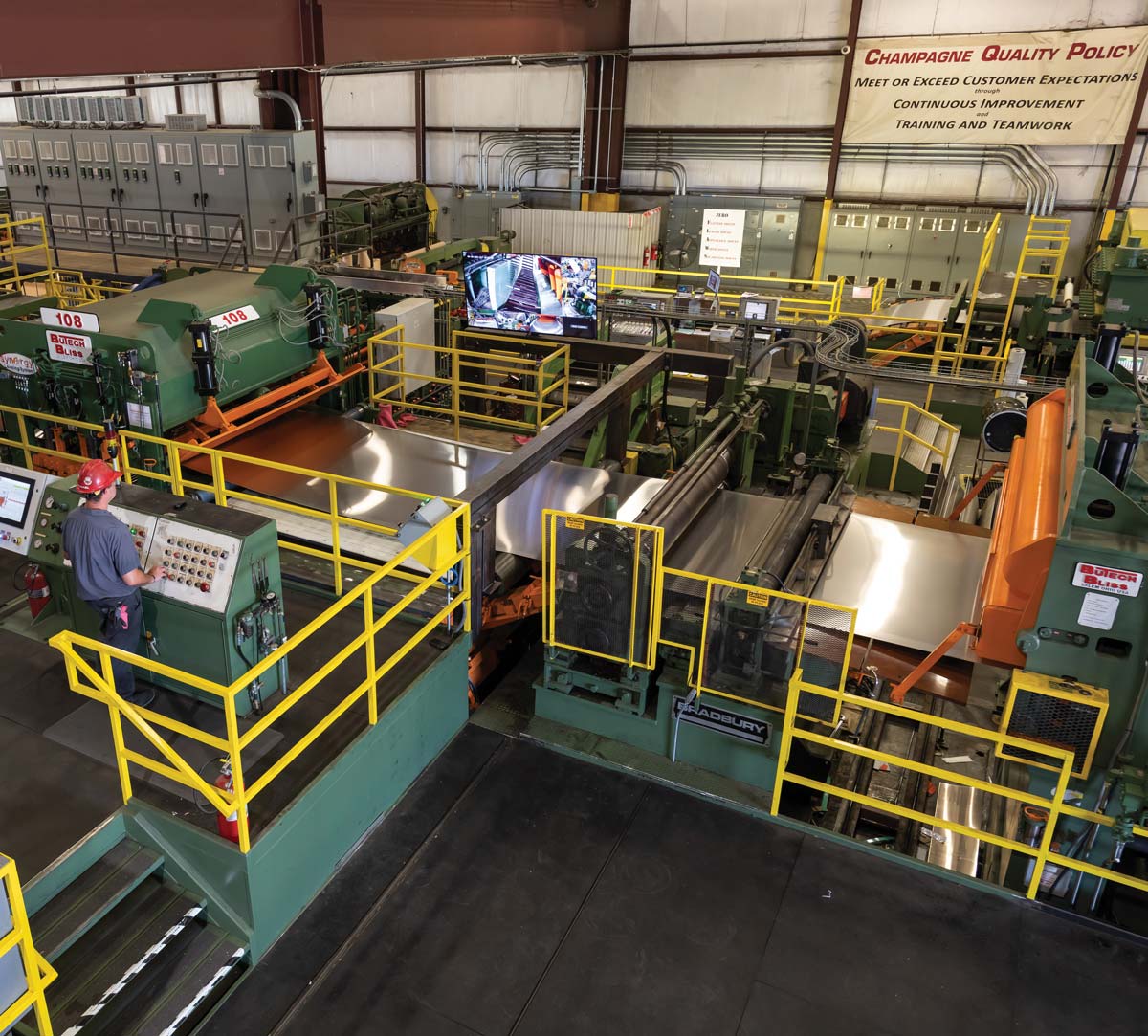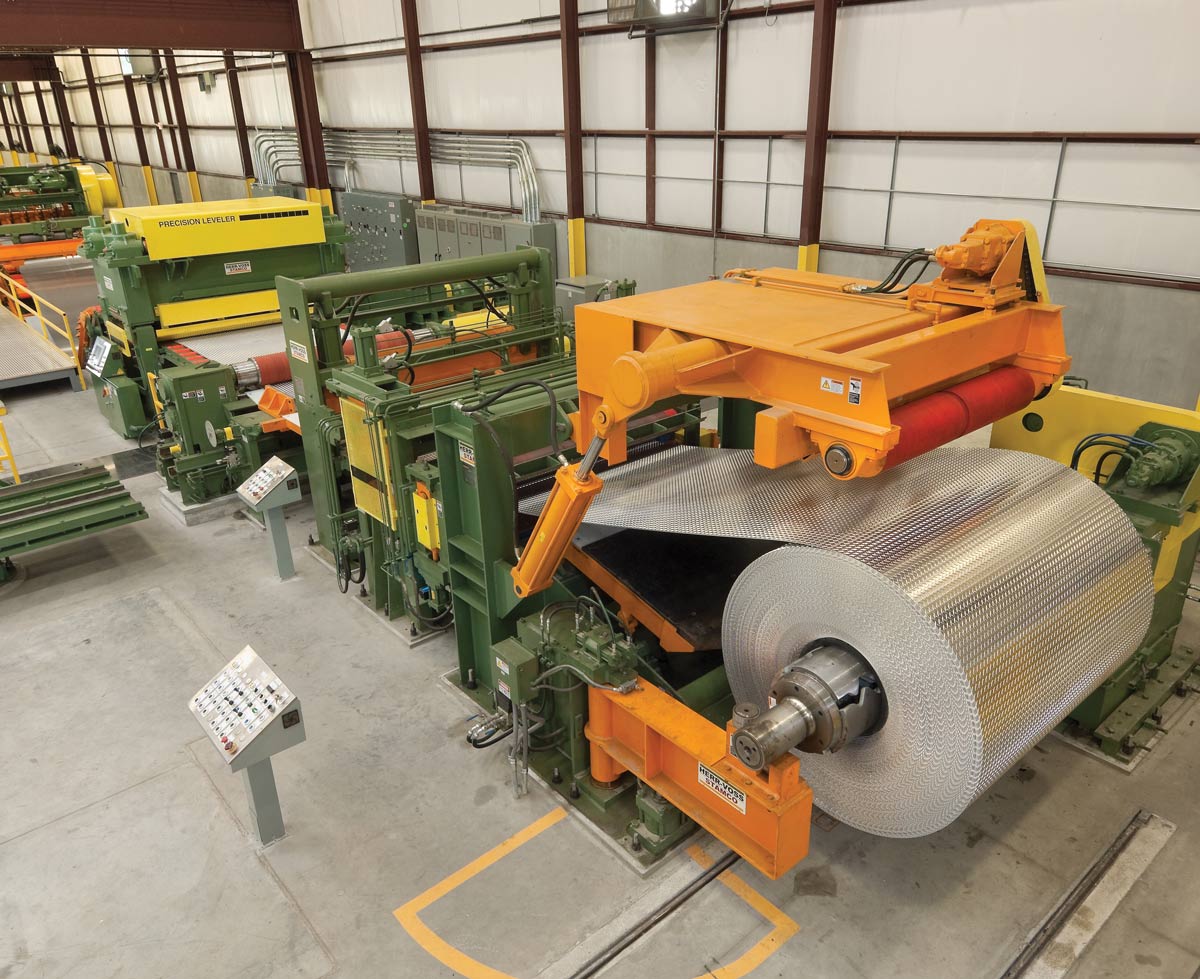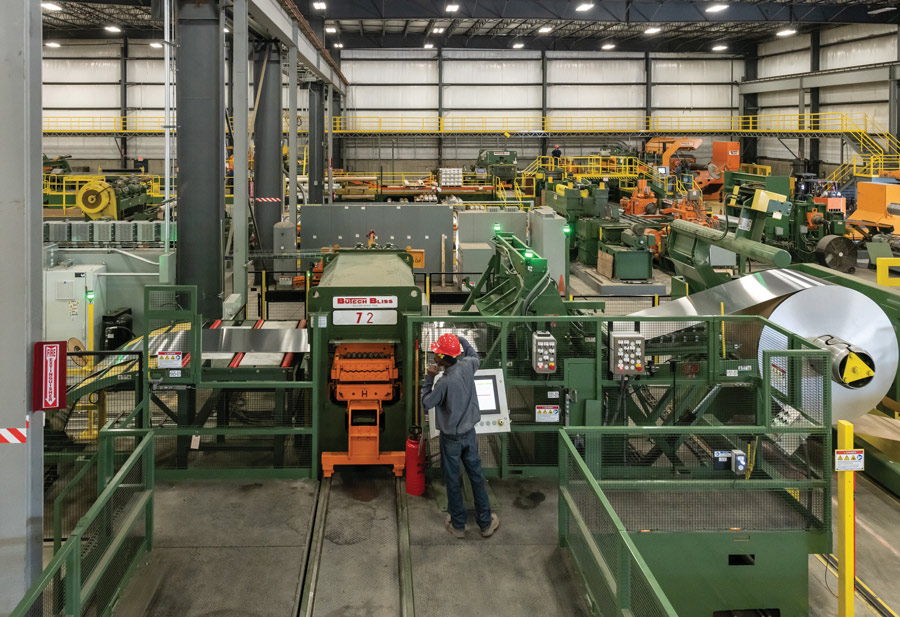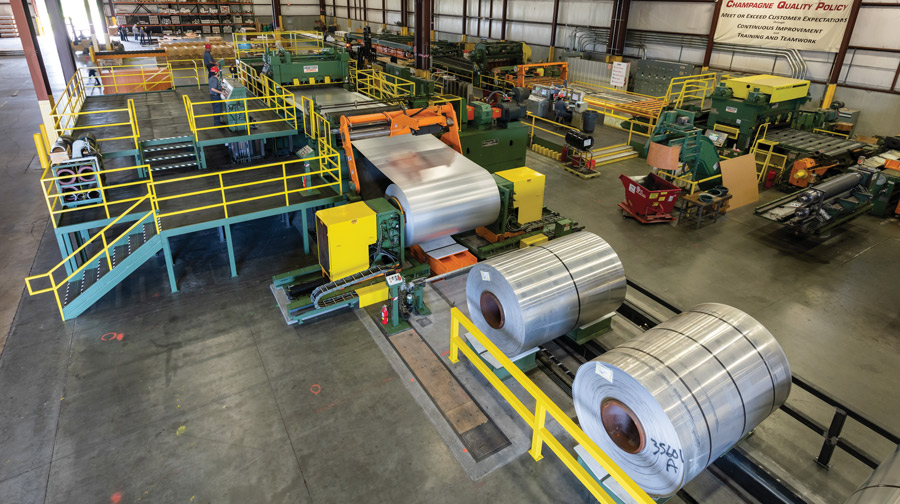
Turbulence
Turbulence
hampagne Metals just celebrated its 25th anniversary in business. According to co-founder, President and CEO Mike Champagne, “We are a family owned, privately held company that invests its money back into the business.”
As the second generation of family moves into leadership roles, he doesn’t expect he’ll be compelled to sell the company. “We have great people coming up. We have the kind of people able to take over for the next generation. My goal now is to hand this off to my family.”
Champagne and his wife, Kim, “started with very little money,” he recalls, but they had “the gumption, enthusiasm and a willingness to gamble. Throughout the 25 years, there were challenging and rewarding times. Considering the circumstances, 2020 was a great year, and this year is certainly better,” he says. “We are humbled but very proud it worked out.”
The company is seeing strong order rates from the commercial vehicle market. This is especially the case for last-mile delivery vehicles, such as those driven by FedEx, UPS and Amazon.

Champagne Metals continues to increase market share, he says, earning more business with manufacturers of semitrailers and Class 8 trucks. “We have further diversified into other markets. In the past, we were predominantly focused on heavy and wide sheet and coil. More recently, we’ve seen great gains in the more traditional standard-size sheet market.
A lot of customers are also dependent on the oil and gas industry, says McGlothlin, especially in the region served by the company’s Oklahoma operations. “As oil pricing starts ticking up, it’s not great for consumers, but it has driven demand for tanker trailers. We participate heavily in that industry as well.”
 Our marine customers have backlogs through the fourth quarter of 2022.
Our marine customers have backlogs through the fourth quarter of 2022. 
Much of the company’s growth has been organic, either capturing more business with existing clients or advancing along with those customers’ own growth. For example, when a customer acquires another company, “we get that additional business.” Word of mouth has been effective, too. “Our customers who outsource work to fabricators sometimes introduce us to them and to their other customers,” McGlothlin explains.
At the pandemic’s outset, aluminum mills reduced capacity as manufacturers idled factories, “but demand then skyrocketed and there was such a dramatic shortage of aluminum. So the balance was out of whack.”

“We gained customers when competitors could not supply on time. Anyone who ran too lean risked losing orders. Manufacturers “started calling us, and we were able to respond with the material they needed. So we picked up customers from our competitors. Customers now want redundant supply. That’s been a big positive in a turbulent market.”
Many companies across the country have reported difficulty filling open positions during the past 22 months. “We retained people, but it’s adding more that’s challenging,” Brandon Champagne says. “We’ve done some creative things to get people in the door.” That includes hiring an employee focused on “helping with our staffing needs,” and “it seems to be having a positive impact.”

As for benefits, “We are more flexible about adjusting hours. We moved to four 10-hour shifts and a three-day weekend.” Shifts overlap so all production needs are met, says Brandon Champagne.
McGlothin concurs. “We were just in for our annual sales meeting,” where the company’s success was analyzed. “We looked at the culture,” and the greatest value lies in “having people who trust and respect one another. They get along internally and with the supply chain team. As we bring the company past its first 25 years, we are creating a fun and energetic place to work,” he says.
“Going to work over the past two years has been challenging and trying” for many, McGlothlin continues, “but we work with people who feel they are all in this together. They want to grow the company and enjoy hanging out with one another. In the future, I will continue to look for those people. They have to fit into the culture.”